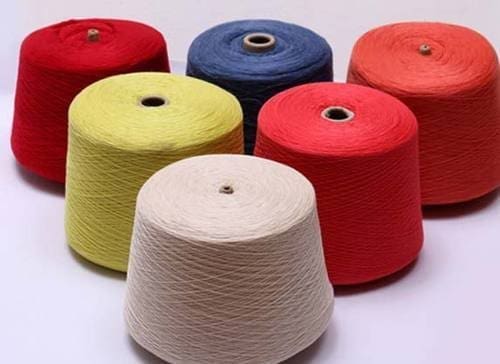Businessmen in the textile sector have complained that low value-added cotton yarn exports had swollen by nearly 36% in February while cotton, cotton yarn and gas remained inadequate for the country’s industry.
In a statement on Wednesday, Pakistan Apparel Forum Chairman Muhammad Jawed Bilwani stated that cotton yarn exports jumped to 44,419 tons in February 2021 compared to 32,694 tons in January.
He identified that the hike in yarn exports came at the cost of domestic industry, which kept agonizing due to inadequacy of cotton yarn.
“Spinners are exporting cotton and gas in the shape of cotton yarn, which is in deficit in Pakistan,” he said. “These essential raw materials and resources could be converted into high value-added products such as garments whose export will earn higher foreign exchange and generate more employment.”
Citing data of the Pakistan Bureau of Statistics, he said that export of value-added knitwear, bed wear and readymade garments indicated month-on-month reduction of 26.14%, 7.35% and 0.42% respectively in February 2021.
To immediately control the declining trend in the wake of grave shortage of cotton yarn, the government should promptly ban its export and eradicate the 5% customs duty on its import.
“Government should also allow import of yarn from all over the world including India at least for the next four months to stabilise and sustain the export of value-added products in a bid to earn foreign exchange for the country,” he said. Featuring that prices of cotton yarn had soared 40%, Bilwani regretted that the commodity was unavailable in the market even at the excessive price.
“The situation has compelled exporters not to take any new orders,” he said. “As a result of yarn shortage, export orders meant for Pakistan will divert to regional countries.”
The US dollar has weakened 7% against Pakistani rupee, which is a matter of concern for the exporters as it has triggered a cash flow crisis.
Bilwani emphasized that the value-added garment and home textile exporters were experiencing trouble and requested the government to support and ease them on a war footing.
Nearly 62% is contributed by the value added textile exports. It also provides 42% of urban employment and earns the highest foreign exchange and support approximately 40 allied industries.

